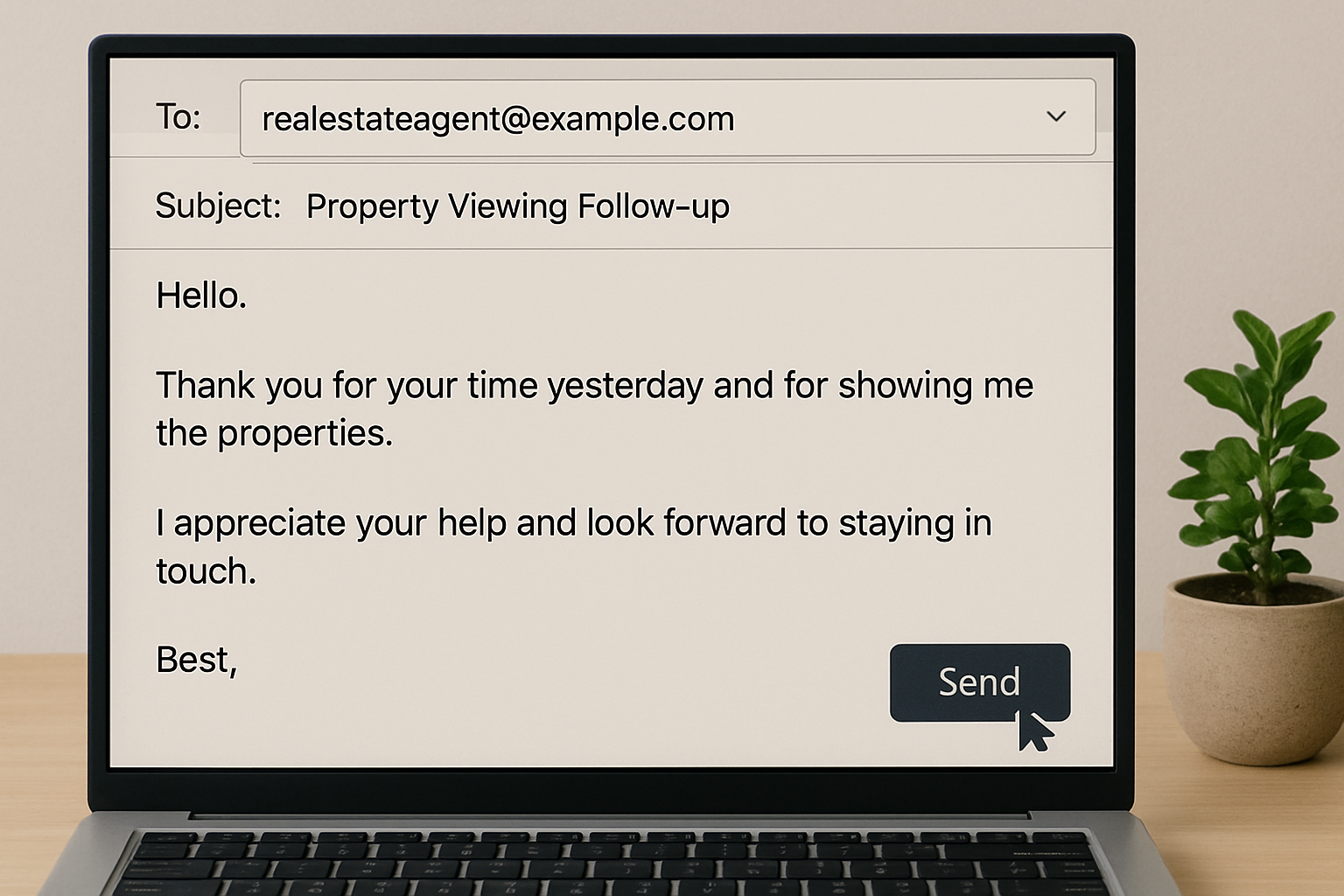In real estate investment, the selection and use of a property management company is as important as the acquisition of the property. Proper property management can significantly improve the profitability of your rental operations.
As INA & Associates, Inc. we have been involved in the real estate industry for many years. From that experience, I can tell you that many property owners do not fully understand the true value of a management company.
This article provides a comprehensive overview of practical knowledge on how to effectively utilize a property management company, from the specific benefits of rental managementoutsourcing, to the market rates for management outsourcing fees, to how to choose a good management company. By utilizing this knowledge, you will be able to transform your rental management into a more stable and profitable one.
What is a property management company? Basic Role and Duties
A property management company is a professional company that manages and operates rental properties on behalf of property owners. They go beyond mere building maintenance and management to provide comprehensive services ranging from improving tenant satisfaction to maximizing asset value.
Major Business Activities
The operations of property management companies fall into the following three major categories
1. Resident management services
Tenant management is an important business that forms the foundation of rental management. Specifically, the company handles everything from recruiting tenants to concluding contracts, collecting and managing rent, responding to tenant inquiries, and attending tenants when they move out.
In particular, managing rent arrears is a task that tends to place a heavy burden on owners. By having a management company with specialized knowledge and experience handle this task, efficient rent collection can be achieved while avoiding legal risks.
2. Building Management
Physical maintenance of the building is another important role of the management company. Through periodic cleaning, inspection and repair of facilities, management of common areas, and response to emergencies, the property's asset value is maintained and improved.
Proper building management improves tenant satisfaction and leads to long-term occupancy. This is an important factor directly related to reducing vacancy risk and securing stable income.
3. Financial Management
Financial support related to rental management, such as income and expenditure management, repair plans, and tax-related work, is another important task of a property management company. We support owners in maximizing their earnings by utilizing our specialized knowledge.
Differences from Property Management
Property management is a more strategic and comprehensive property management approach. It goes beyond mere day-to-day management operations to provide sophisticated management services aimed at maximizing asset value, such as setting rents based on market analysis, developing renovation plans, and optimizing the tenant mix.
While conventional management operations have a strong "defensive" aspect, property management can be described as an "offensive" asset management strategy.
Five Advantages of Using a Property Management Company
Outsourcing to a property management company is more than just outsourcing operations. Through a strategic partnership that leverages expertise, you can enjoy the following five key benefits.
1. Efficient management through expertise
Property management requires a wide range of expertise, including legal, tax, architectural, and marketing. A property management company has personnel with expertise in these specialized fields, and can quickly and appropriately resolve complex issues that would be difficult for an individual owner to handle.
For example, knowledge of the Land and Building Lease Law and the Civil Code is essential when dealing with problems with tenants. Inappropriate responses can lead to legal risks, but a management company with expertise can minimize these risks through appropriate responses based on legal grounds.
2. Reduction of Time and Cost
Rental management requires more time and effort than you might imagine. Tenant inquiries can occur 24 hours a day, 365 days a year, and emergencies must be handled. Outsourcing to a management company relieves you of these work burdens, allowing you to focus on your core business and other investment activities.
In addition, by managing multiple properties at once, a management company can take advantage of economies of scale to reduce costs. This enables more efficient and economical management than arranging individual contractors.
3. Improved occupancy rates and stable income
A good management company will utilize its extensive experience and network to effectively recruit tenants. By setting appropriate rents, creating attractive property information, and collaborating with multiple brokerage firms, they can shorten vacancy periods and improve occupancy rates.
In fact, occupancy rates for properly managed properties can be maintained at 95% or higher. This is an important factor directly related to securing stable income.
4. Reduction of Legal Risks
Rental management involves various legal risks. Rent arrears, breach of contract, accidents due to malfunctioning equipment, etc., can cause serious losses if not properly handled.
The management company will detect these risks in advance and take appropriate preventive measures. In the event of a problem, losses can be minimized through prompt action based on legal grounds.
5. Maintenance and improvement of asset value
Proper management can maintain and enhance the asset value of a property over the long term. We maintain the competitiveness of properties through regular maintenance, planned repairs, and renovations in response to market trends.
In particular, management that incorporates property management techniques goes beyond mere upkeep and management to implement proactive value enhancement measures. This enables us to improve long-term profitability and maximize asset value.
Types and Characteristics of Outsourced Management
There are three main types of rental management outsourcing. It is important to understand the characteristics of each and select the most appropriate method according to the property conditions and investment strategy.
Outsourced Management
The management consignment method is the most common type of consignment. The owner retains ownership of the property and outsources only the management of the property to a management company. Rent income goes directly to the owner, and the management company is paid a management fee.
The greatest advantage of this method is that the owner can take the initiative in deciding the management policy of the property. The owner retains the final say in setting rents, selecting tenants, repair plans, etc.
Bulk Leasing Method (Sublease)
In the bulk leasing method, the management company leases the property from the owner in bulk and subleases it to a third party. The management company guarantees a certain rent to the owner, thereby avoiding vacancy risk.
However, the guaranteed rent is generally set lower than the market rent. Also, depending on the terms of the contract, the rent may be reduced after a certain period of time, so the long-term profitability of the property must be carefully considered.
Comparison with Self-Management
Self-management is a method in which the owner is responsible for all management tasks. Since management fees are not required, profitability is higher in the short term, but risks due to time burdens and lack of expertise must also be taken into consideration.
| Item | Outsourced Management Method | Lump-sum leasing method | Self-management |
|---|---|---|---|
| Management fee |
3-5% of rent |
Not required (included in guaranteed rent) | Not required |
| Vacancy risk | Owner bears | Management company's burden | Owner's burden |
| Right to determine management policy | Owner | Management company | Owner |
| Time burden | Minor | None | Large |
| Expertise required | Not required | Not required | Necessary |
| Profitability | Moderate | Stable (slightly low) | High (with risk) |
Selection Criteria for the Best Method
The choice of management method should be determined by comprehensively considering the following factors
Location and size of the property: If the property is in a good location and demand is stable, the outsourced management method may be suitable; if the location is uncertain, the bulk leasing method may be suitable.
Owner's experience and time: If you are an experienced real estate investor with plenty of time to spare, self-management may be an option, but outsourced management is recommended for beginners or those who are busy with their day jobs.
Investment strategy: The bulk rental method is suitable for those who value stable income, and the outsourced management method is suitable for those who aim to maximize profits.
Market Price and Cost-Effectiveness of Outsourced Management
A proper understanding of outsourced management fees is essential to achieving profitable rental management. It is important to understand the market rate of expenses and properly evaluate the cost-effectiveness of the services provided.
Market Price of Management Fees
Generally, the market rate for property management outsourcing fees is 3% to 5% of rent income. However, it varies greatly depending on the scope of work to be outsourced, the size of the property, and its location.
Breakdown of Commissions by Business
| Scope of Business | Market rate of commission | Remarks |
|---|---|---|
| Collection and management only | 3% of rent | Rent collection, arrears management |
| General management | 5% of rent | Rent collection + tenant relations + building management |
Services Included in the Fee
The services included in the management fee vary greatly depending on the management company. It is important to check the details and verify that the necessary services are included before signing a contract.
Basic Services
- Rent collection and remittance
- Responding to tenant inquiries
- Contract renewal procedures
- Witnessing tenants moving out
- Cleaning of common areas
Additional services (additional fees may apply)
- Tenant recruitment and brokerage
- Planning and supervision of large-scale repairs
- 24-hour emergency response
- Tax-related support
How to Calculate Cost-Effectiveness
Cost-effectiveness of outsourced management cannot be determined by a simple comparison of fees. The following factors must be evaluated comprehensively.
1. Effectiveness in improving occupancy rates
Let's calculate the effect of a 5% increase in occupancy rate due to appropriate management by a good management company on the profitability of the property.
Calculation example: Monthly rent: 100,000 yen
- Monthly rent: 100,000 yen
- Annual rental income: 1.2 million yen
- Management fee (6%): 72,000 yen
- Revenue increase due to higher occupancy rate (5%):60,000 yen
- Actual fee burden:12,000 yen (per year)
In this example, even though management fees are paid, the actual burden is greatly reduced due to the improved occupancy rate.
2. Reduction in time cost
The time required for self-management is converted to an hourly rate to evaluate the time reduction effect of outsourcing management. At 3,000 yen per hour for 20 hours of management work per month, time costs are reduced by 720,000 yen per year.
3. Risk Reduction Effect
Another important factor is the effect of reducing the risk of loss due to legal troubles or equipment accidents. Through proper management, losses of several hundred thousand yen to several million yen per year can be avoided.
Points to consider when selecting a management company
When selecting a management company, the following points should be noted in terms of cost.
Transparent fee structure: Select a fee structure that clearly separates basic fees from additional fees to avoid unexpected costs.
Consistency with services: A low fee may result in high costs if it does not include necessary services.
Evaluation based on performance: It is important to objectively evaluate cost-effectiveness based on performance data such as occupancy rates and customer satisfaction.
How to Select an Excellent Property Management Company
Choosing the right management company is one of the most important decisions that will determine the success of your rental management. Proper selection will ensure stable earnings over the long term. It is important to make a comprehensive evaluation based on the following six points
1. Confirmation of track record and reliability
A management company's track record is the most objective indicator of its ability. Check the following items in detail.
Number of units under management and occupancy rate
The number of units managed is evidence that the company is trusted by many owners. A company that maintains an average occupancy rate of 95% or higher is considered to have excellent management capabilities.
Business history and financial stability
Select a company that has been in business for a certain period of time and has maintained stable operations. A company with an unstable financial situation may not be able to continue to provide services.
Licenses and Qualifications Held
Possession of a real estate transaction license is a prerequisite. In addition, a company with qualified personnel such as rental real estate business managers and chief administrators can be judged to have a high level of expertise.
2. Communication skills and responsiveness
A good management company emphasizes close communication with owners. Check the following points.
Good reporting system
Check whether the company has a highly transparent reporting system in place, including the provision of monthly and annual reports and prompt communication of important matters.
Emergency response system
We will evaluate whether the company has a 24/7 emergency response system in place and whether it can respond quickly and appropriately.
Ability to make proposals
Select a company that does not limit itself to mere management services, but also makes proactive proposals to improve profitability and asset value.
3. Tenant Recruitment and Sales Capability
Reducing vacancy periods is an important factor directly related to profitability. Evaluate the following capabilities
Extensive network
Check whether the company engages in multifaceted recruiting activities such as cooperation with multiple brokerage firms, ability to post information on Internet media, and community-based sales activities.
Marketing ability
We will evaluate whether the company has a marketing perspective, such as setting appropriate rents, creating attractive property information, and developing recruitment strategies according to target demographics.
4. Building Management and Maintenance Capability
Proper building management is essential to maintaining the asset value of a property.
Periodic inspection and maintenance system
We check whether a comprehensive maintenance system is in place, including periodic inspections of building facilities, implementation of preventive maintenance, and prompt response to emergency repairs.
Contractor Network
We evaluate whether the company has established cooperative relationships with reliable contractors, cleaners, equipment suppliers, etc., to provide quality services at reasonable prices.
5. Legal knowledge and risk management skills
Rental management involves various legal risks. Check the company's ability to deal with these in an appropriate manner.
Abundance of legal knowledge
Evaluate whether the company is familiar with relevant laws and regulations such as the Land and House Lease Law, Civil Code, and Building Standard Law, and whether it can provide appropriate advice.
Track record of handling troubles
Check the company's track record and ability to resolve problems such as rent arrears, breach of contract, and neighborhood troubles.
6.Utilization of Technology
In modern property management, the use of technology is the key to improving efficiency and quality.
Enhancement of management systems
We will check whether the company has a digitalized management system in place, such as online income and expenditure tracking, tenant information management, and repair history tracking.
Services for tenants
We will evaluate whether the property offers services that improve convenience for tenants, such as online rent payment, 24-hour reception system, and tenant-specific apps.
Pre-Contract Checklist
Before signing a contract with a management company, be sure to check the following items.
| Check items | Contents to be checked |
|---|---|
| Contract Term and Termination Conditions | Contract term, cancellation notice period, and cancellation fees |
| Details of management fees | Basic fees, additional fees, and conditions for raising fees |
| Scope of services | Included services, services with separate fees |
| Reporting System | Reporting frequency, content of reports, contact method |
| Emergency response | Response time, scope of response, cost sharing |
| Resident Recruitment | Recruitment methods, advertising costs, closing conditions |
In my experience, by partnering with a management company that meets these criteria, we have been able to simultaneously improve occupancy rates and reduce management costs. A management company with the right people is not just a service provider, but an important partner that supports successful rental management.
Conclusion
Effective use of a property management company is the foundation of successful rental management. The following key points summarize the information discussed in this article.
Organization of key points
Leverage expertise: Property management requires a wide range of expertise, and the expertise of a property management company will ensure efficient and appropriate management.
Optimize cost-effectiveness: Although the market rate for outsourcing management costs is approximately 3-5% of rent, it is a reasonable investment when considering the benefits of improved occupancy rates and time cost savings.
Selecting a management method: It is important to select the most appropriate method among outsourced management, bulk leasing, and self-management, depending on the characteristics of the property and the investment strategy.
Importance of Partner Selection: The selection of a good management company directly affects the long-term profitability and maintenance/enhancement of asset value. Evaluate their track record, reliability, communication skills, and other factors in a comprehensive manner.
Next Action Steps
If you are considering the use of a property management company, we recommend that you proceed with the following steps
Analyze the current situation: Clarify the current management situation, issues, and goals for improvement.
Selection of candidate companies:Compare multiple management companies using the selection criteria outlined in this article.
Detailed consultation: Confirm specific services and costs through interviews with potential companies.
Scrutinize contract terms and conditions: Before signing a contract, confirm in detail the scope of services, costs, and cancellation terms and conditions.
At INA&Associates, Inc., we place " human resources and trust" at the core of our management, and provide comprehensive support to ensure the success of our clients' real estate investments. We utilize our expertise and wealth of experience in property management to maximize the value of our clients' assets.
If you have any questions or concerns about property management, please do not hesitate to contact us. We will support your rental management success with our expertise.
Frequently Asked Questions
Q1. How much does it cost to outsource property management?
A1.Management fees vary depending on the scope of work to be outsourced, but generally range from 3% to 8% of rental income. For collection management only, the fee is 3%, and for comprehensive services including property management, the fee is about 5%.
The key is not to simply compare fees, but to evaluate the overall cost-effectiveness of the services provided. If proper management by a good management company improves occupancy rates and reduces management costs, the benefits will outweigh the fees.
Q2. Is it possible to change the management company?
A2. Yes, it is possible to change the management company. However, the terms of the contract may stipulate a notice period for cancellation and costs for cancellation. Generally, 1-3 months' notice is required, and in some cases, a penalty fee may apply.
When considering a change of management company, it is important to confirm the details of the current contract and compare the terms with the new management company. We recommend that the timing of the change coincide with the contract renewal period to minimize the impact on tenants.
Q3. Which is better, self-management or outsourced management?
A3. The choice between self-management and outsourced management depends on the owner's situation and investment strategy.
If self-management is suitable for you: - If you are a property owner with
- Experienced and knowledgeable in property management
- Have more time to spare
- Have a small number of properties
- Want to minimize management costs
Outsourced property management is suitable for
- Beginners in real estate investment
- You are busy with your day job and have little time to spare
- Own multiple properties
- Seek professional services
In my experience, I recommend consignment management to beginners and those who own multiple properties. This is because by utilizing our expertise and experience, you can ensure a more stable revenue stream.
Q4. What is the most important point in choosing a management company?
A4. The most important factors in selecting a management company are reliability and track record. Specifically, it is important to comprehensively evaluate the following factors
Track record: Check objective performance data such as number of units managed, average occupancy rate, and business history.
Communication skills: Evaluate the ability to build good relationships with owners through regular reporting, prompt communication, and ability to make proposals.
Expertise: Check whether the company has the necessary expertise, such as legal knowledge, market analysis skills, and building management techniques.
Balance of services and costs: We evaluate whether the services provided and the costs are appropriately balanced.
We at INA & Associates, Inc. are committed to continuous human resource development and service improvement to ensure that all of these factors are met.
Q5. What can a management company do to improve occupancy rates?
A5. A good management company can help improve occupancy rates by
Effective recruiting activities: We approach a wide range of prospective tenants by collaborating with multiple brokerage firms, actively posting information on the Internet media, and creating attractive property information.
Appropriate rent setting: We increase the closing rate by setting competitive rents based on market analysis.
Improvement of property attractiveness: We increase the competitiveness of properties by thorough cleaning, proposing facility improvements, and planning renovations.
Improve tenant satisfaction: Promoting long-term occupancy and reducing vacancy risk by providing prompt responses and attentive services.
In fact, properly managed properties can maintain occupancy rates of 95% or higher.

Daisuke Inazawa
Representative Director of INA&Associates Inc. Based in Osaka, Tokyo, and Kanagawa, he is engaged in real estate sales, leasing, and management. He provides services based on his extensive experience in the real estate industry. Based on the philosophy that “human resources are a company's most important asset,” he places great importance on human resource development. He continues to take on the challenge of creating sustainable corporate value.

.png)













